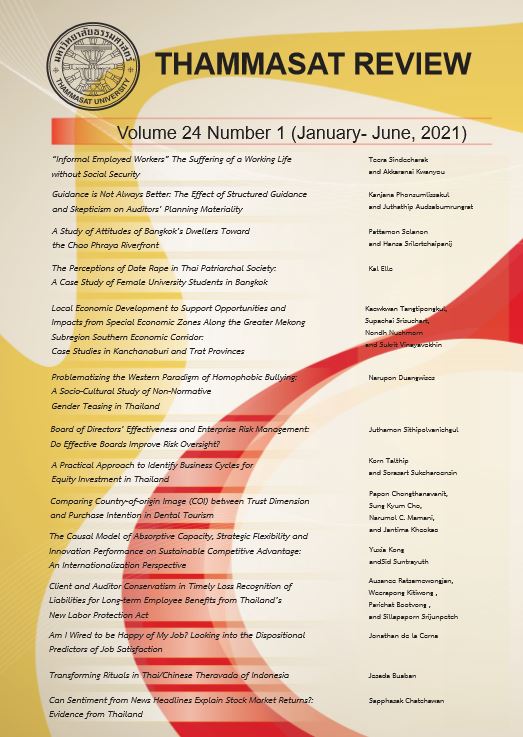Transforming Rituals in Thai/Chinese Theravada of Indonesia
Keywords:
Buddhism, Chinese, Indonesia, SyncretismAbstract
This paper analyzes the syncretic rituals conducted by Thai monks when they encounter Chinese beliefs in Indonesia. It questions how Thai monks transform the rituals to respond to the Chinese’ need by not losing their agency. Ethnographic methodology was conducted in Java and Sumatra for five months. Collected data was conceptualized through the idea of religious syncretism. It found that in Javanese and Chinese environments, Thai monks play a role of Javanese magicians in dealing with ghosts and black magic to stabilize the business and health of Chinese patrons. Thai monks also broaden the period of merit-transferring rituals to serve the Chinese who are busy on Ullambana (Mahayana) day. In addition, Fangshen or the animal-releasing ritual is arranged with the old name but new purpose. It is not for cultivating loving kindness only, but also using animals as a tool to transfer merits to one’s dead relatives. Theravada monks can still maintain their central role, though they are living in Mahayana communities. However, the transformation of rituals is not necessarily based on Theravada tradition. Rather, it reflects a syncretic form of ritual, in which Javanese, Chinese, Mahayana, as well as Theravada traditions are mixed.
Downloads
Published
How to Cite
Issue
Section
License
The opinions and ideas expressed in all submissions published in Thammasat Review are solely that of the author(s) and do not necessarily reflect that of the editors or the editorial board.
The copyright of all articles including all written content and illustrations belong to Thammasat Review. Any individuals or organisation wishing to publish, reproduce and distribute a particular manuscript must seek permission from the journal first.








